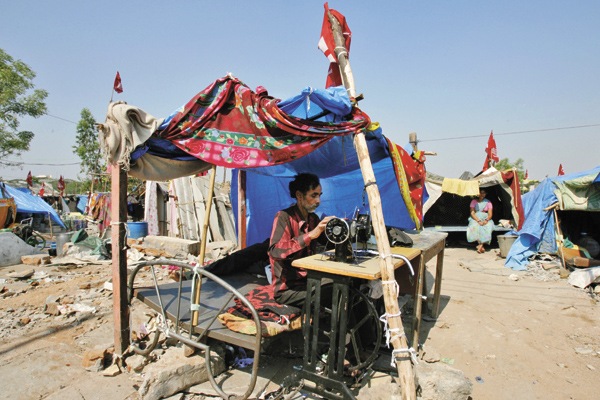
Up and running: micro-finance schemes in India have helped to get small businesses off the ground
Selling to the next billion customers
Until recently, the world’s poor were seen as people in need of largesse, whether from the state, large philanthropic organisations or small community groups. Today, the poor are no longer seen just as passive aid recipients but as a new consumer class willing to pay for goods and services – if these products are packaged, and priced appropriately.
The radical notion that selling to the poor can be profitable – and can help to alleviate poverty – was most actively propagated by the late CK Prahalad, an Indian-born professor of corporate strategy at the University of Michigan.
His 2006 book The Fortune at the Bottom of the Pyramid argued that treating the 4bn people in the world living on less than $2.50 a day as potential consumers – and developing business models to serve their needs – was “at the heart of the solution to poverty”.
Even before that, some individuals and companies had seen the potential. In the 1980s, Muhammad Yunus, a Bangladeshi economist, founded his pioneering Grameen Bank, which provided small loans to poor rural women at interest rates higher than commercial banks – from which the women could not borrow anyway – but lower than the local money-lenders.
In India, Hindustan Lever, an arm of consumer goods giant Unilever, in the 1990s started selling sachets of shampoo, tea and other consumer basics for one rupee – which even the poorest Indian could afford.
In Brazil, Casas Bahia became the country’s largest retailer by allowing cash-strapped working-class consumers to pay for household items in small instalments.
Philanthropic organisations have also been affected by the new mantra of market-based solutions to intractable problems. Charities such as the Michael & Susan Dell Foundation are putting their resources into social businesses that provide services such as health and educational support or even clean drinking water, through businesses that charge small user fees.
Of course, debate still rages over the ethics of profiting from the poor. Most mainstream companies see little problem with earning returns for shareholders if they can succeed in cracking the bottom of the pyramid market. Other companies with a stronger social mission tend to follow Yunus’s belief that profits should be ploughed back into the business to allow it to expand and serve more customers.
Amy Kazmin
